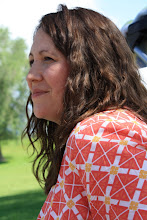With Patty's contribution a while back, she pointed out something about the mixing of academia and faith. A lot of times these two don't get along very well. I suppose I speak as somewhat of an outsider. I am not intellectually specialized by a PhD, have never published research or forums, and sometimes don't shower for three days. But I did spend a good 5 years getting a four-year degree, still live in a University town, and took an educational hiatus to serve a mission where, ironically, five (out of 18) months were stationed at the LDS Institute at the University of Florida in Gainesville (go Gators!).
EXHIBIT A:

This is the President of the LDS church during the span of my mission service, marriage, and birth of my 3 kids. I kindof like him. He strongly encouraged members throughout the world to get more education: "Education is the key to opportunity" is what he always said.
EXHIBIT B:
With all the rubbing of shoulders of friends, peers, and faculty, I have found that a popular catch-phrase for the intellectually stimulated becomes "I don't believe in organized religion". Does that make them bad? No! Maybe it's learning about those Crusades for the first time, or thinking about all the college keggers your religion wants you to miss out on. Perhaps it's that new sense of freedom we all feel when we leave home. At any rate, college life becomes the first place you begin to define your own religion. Some people grow into their parents testimonies of religion, others say God is more powerful in nature [while smoking a hookah pipe and snowboarding on the Sabbath ;)].
This growing period is necessary, and sometimes risky. The major risk being that you forget your true identity as a child of a loving, patient, kind, and concerned Heavenly Father.
EXHIBIT C:
And here is the key. C.S. Lewis said it best.
"Education, without values, as useful as it is, seems rather to make man a more clever devil"
Or as Mrs. Olsen says, education without the spirit, makes people lose their true identity...and sometimes become buttheads. Intellectual pursuits expand our minds and our opportunities, but it's important to keep working at your relationship with Deity. Prayer and scripture study are key.
EXHIBIT D:
*John (name changed) is a univeristy professor. He is well beyond the freedom college days, and is well-worn in his intellectual pursuits as a professor. He talks about balancing faith and academia this way:
Life in academia is intellectually stimulating and invigorating. Sometimes, however, people of faith in academia fall trap to their intellect, so much so that they either lose faith in God or shift their faith away from God toward rational humanism or some other philosophical bent. Empiricism becomes their religion and religion itself is dismissed as “the opiate of the masses,” like Karl Marx suggested. I should hasten to add that overzealous faith can also lead to apostasy. Maintaining a balance is key.
I am not sure that there is a secret formula to prevent loss of faith, but I have a few “tools” that I use in an effort to keep things in balance. Studying history, especially LDS history, can lead people down controversial paths, some of which lead some scholars out of the Church. I was given my most useful “tool” for dealing with controversial issues by a counselor in a BYU student ward bishopric during a temple recommend interview. I was just beginning my forays into LDS history and finding inconsistencies, fallibility, and far too much humanness for my liking at the time (I now thrill in the humanness of it all. It gives me hope in overcoming my own humanness). I trusted this counselor with my feelings and have been grateful ever since. He drew a circle on a piece of paper and then several larger concentric circles around it. In the middle of the innermost circle he wrote Jesus Christ. At various layers outside the center he put the Mountain Meadows Massacre, blacks and the priesthood, post manifesto polygamy, and other such topics. He asked what my testimony was centered upon? I of course responded, “Jesus Christ.” He then suggested that that was all that really mattered. If I ever moved the center of my circle to one of the other topics on the page and made one of them my focus, my eye was no longer single to the glory of God (and could thereby place my testimony in jeopardy). All of the controversial topics are peripheral to what is crucial: Jesus Christ.
My second tool is a verse from Isaiah (5:21): “Wo unto them that are wise in their own eyes, and prudent in their own sight.” If I ever think I have it all figured out, Isaiah keeps me in check as he does my view of those who claim to have THE answer on a given topic. Religion for me is ultimately about faith. Sometimes God simply asks me to bow my head and say yes.
My third and most important tool is my testimony. When I start to question too much the foundation of my faith, the Lord’s answer to Oliver Cowdry grounds me: “Did I not speak peace to your mind concerning the matter? What greater witness can you have than from God?” (D&C 6: 23). I believe in an otherly-world way of “knowing.” Some academics dismiss this way of knowing as irrational, emotional, anti-empirical. I reject their claims. I cannot turn away from the day God spoke peace to my mind, heart, and soul. In response to my simple inquiry for wisdom, He reached down from heaven and enveloped me in His love. What greater witness do I need?







3 comments:
Beautiful. Mrs. Olsen and "John", I love how the important truths you point out are also simple enough for a child to understand: you love Jesus so you believe Him; you don't know everything; and God means what He says/said. That's the gospel.
Thanks; I really enjoyed this.
I appreciated your comments and those of the university professor. I, too, agree that Jesus Christ must be at the center of one's testimony. Keep up the Testimony Tuesdays--they lift my day.
Post a Comment